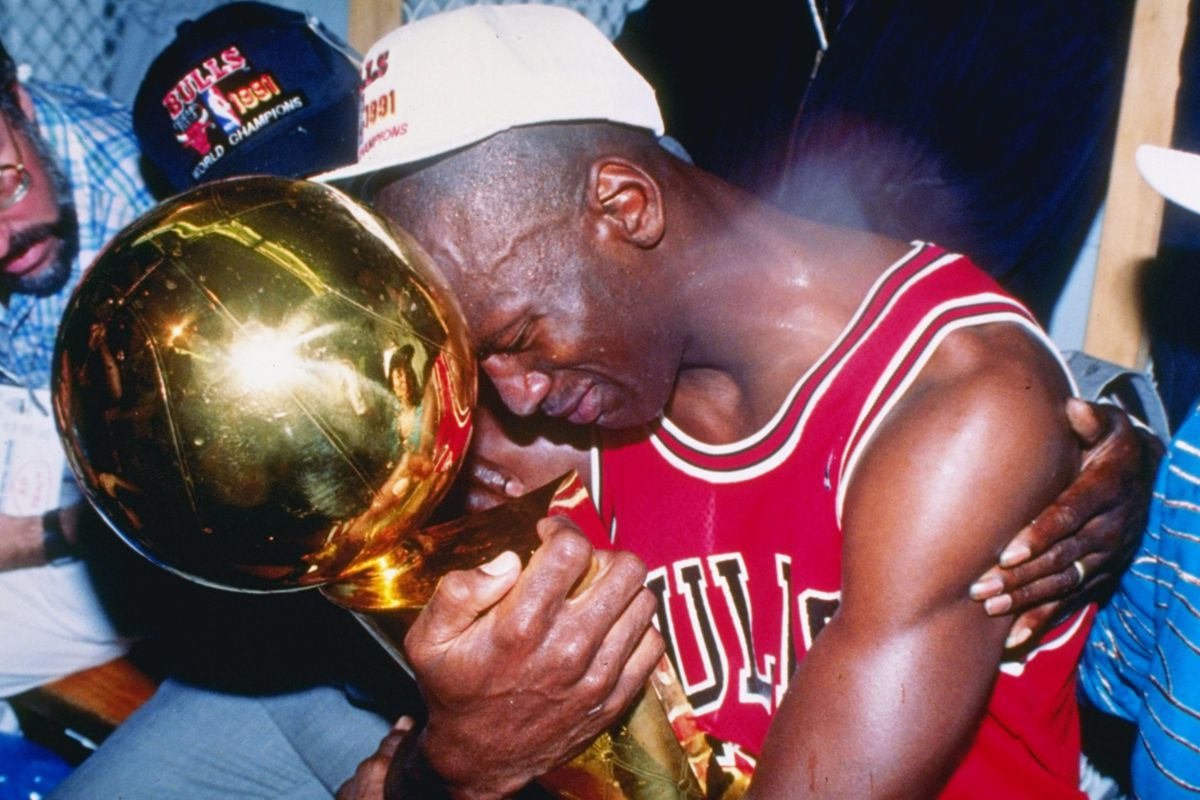The Last Dance Review: Takeaways from Episode 3 and 4
- Apr 28, 2020
- BASKETBALL
- Iggy Gonzales

The first two episodes of "The Last Dance" were certainly worth the wait and if you've already seen the third and fourth episodes of the 10-episode documentary, you will feel the same. And perhaps more.
"The Last Dance" talks about pretty much everything that went down during Michael Jordan's final season with the Chicago Bulls in the 1997-1998 season of the National Basketball Association (NBA) and it included everything that happened before that particular season and that's including how Dennis Rodman came into the picture and helped the Bulls became the dominant force they were during that time.
Dennis Rodman is a five-time NBA champion and a seven-time NBA All-Defensive Team member. He also won the Defensive Player of the Year twice in his career and he is one of the best rebounders that the NBA has ever seen. But Dennis Rodman didn't start as the most controversial player he was.
"The Worm" was drafted by the Detroit Pistons as the 27th pick in the 1986 NBA Draft and won two NBA championships with Isiah Thomas and company. The Rodman-infused Detroit even came face-to-face against the Bulls who were, at that time, rising to be a serious threat in the Eastern Conference. However, the Pistons had the Bulls' numbers despite Chicago having to beat the Cleveland Cavaliers in the first round of the 1989 playoffs where Michael Jordan bailed the Bulls with the buzzer-beating series-clincher shot that ended up as one of the greatest game-winners of all-time. Rodman was a Piston when Detroit started implementing the "Jordan Rules" right after the Bulls took Game Three of the conference finals on a buzzer-beater by none other than His Airness himself. In other words, Dennis Rodman helped Implemented the "Jordan Rules" which had one simple (and not) objective: to stop #23 whenever he's on the floor. And it worked as the Pistons eliminated the Bulls in Game Six.
Rodman's career in Detroit hit an abrupt end when he was traded to the San Antonio Spurs in 1993 after what looked like an emotional breakdown that included Rodman getting caught by a cop with a gun in front of him. Rodman was acting out during his short stint in San Antonio and if not to Jim Stack, the Bulls would probably never picked Rodman up as the late Jerry Krause said that he wasn't fond of Dennis Rodman.
According to Jim Stack, the assistant general manager of the Bulls at the time, having Micahel Jordan and Scottie Pippen leading the Bulls will make Dennis Rodman respect them and eventually, thrive up again. And frankly, it may have been a bumpy journey for Rodman but as the Bulls said it in the third episode, Rodman delivered whenever he was on the floor. As Michael Jordan said it, he and Scottie Pippen don't do things that Rodman does. That just explains the importance of one Dennis Rodman to the Bulls and their dynasty.
The third and fourth episodes of "The Last Dance" also talked about Phil Jackson and why he was hailed as the Zen Master. Sure, Jackson included native American Indian philosophy along with Buddhism into his coaching practices but one of the reasons why he was so successful with the Bulls and later, with the Los Angeles Lakers is because of the Triangle Offense.
As a professional player, he won two championships with the New York Knicks and as a coach, he ended up becoming the winningest coach in NBA history with 11 NBA championships: six with Chicago and five more with the Los Angeles Lakers. But believe it or not, Phil Jackson had to turn the Bulls upside down for them to start winning championships in the 90s.
Prior to Jackson's arrival at the helm, Doug Collins was calling shots for the Bulls. It was under Doug Collins when Michael Jordan won the Most Valuable Player award of the season and the All]-Star Game, the Slam Dunk Contest, and the Defensive Player of the Year. And since 1988, Collins's offense was designed to cater to the ability of Michael Jordan. All of that was scrapped when Phil Jackson was appointed as the Bulls' head coach in 1989 as Jackson started integrating Tex Winter's masterpiece into the Bulls' offense: the Triangle Offense.
The main objective of the Triangle Offense is to create more opportunities and possibilities out of a single pass. In other words, the Bulls were forced to switch from a one-man show to a five-man show. It's about teamwork and believe it or not, the Bulls struggled in the early implementation of the Triangle Offense and it took them a year to get used to it and when they did, the Bulls just took off and never looked back.
And if not to the Triangle Offense and Phil Jackson, the Bulls wouldn't have had that same success they did. Even Michael Jordan himself admitted that he didn't like the fact that Phil Jackson was designing an offense that actually takes away the ball from his hands. And eventually, Phil Jackson made Jordan realize that the defense would start to attack him as long as he had the ball which made him push his teammates to improve on their respective games.
And by the 1990-1991 season not only did the Bulls motivate themselves to get better during the offseason after suffering another heartbreaking loss at the hands of the Pistons, but that was also the first time that the NBA saw Michael Jordan as the great leader on and off the court who pushed and trusted his teammates. That trust allowed the Bulls to finally beat Detroit in the 1991 Eastern Conference Finals. That trust towards John Paxson allowed Jordan and his fabled Bulls to win their first-ever NBA championship against Magic Johnson and the Los Angeles Lakers in Game Five of the 1991 NBA Finals.
Trusting the coach. Trusting the system. Trusting your teammates. Those were the things that help Michael Jordan win his first NBA championship. Simple as that.
Photo is from Chicago Sun-Times
